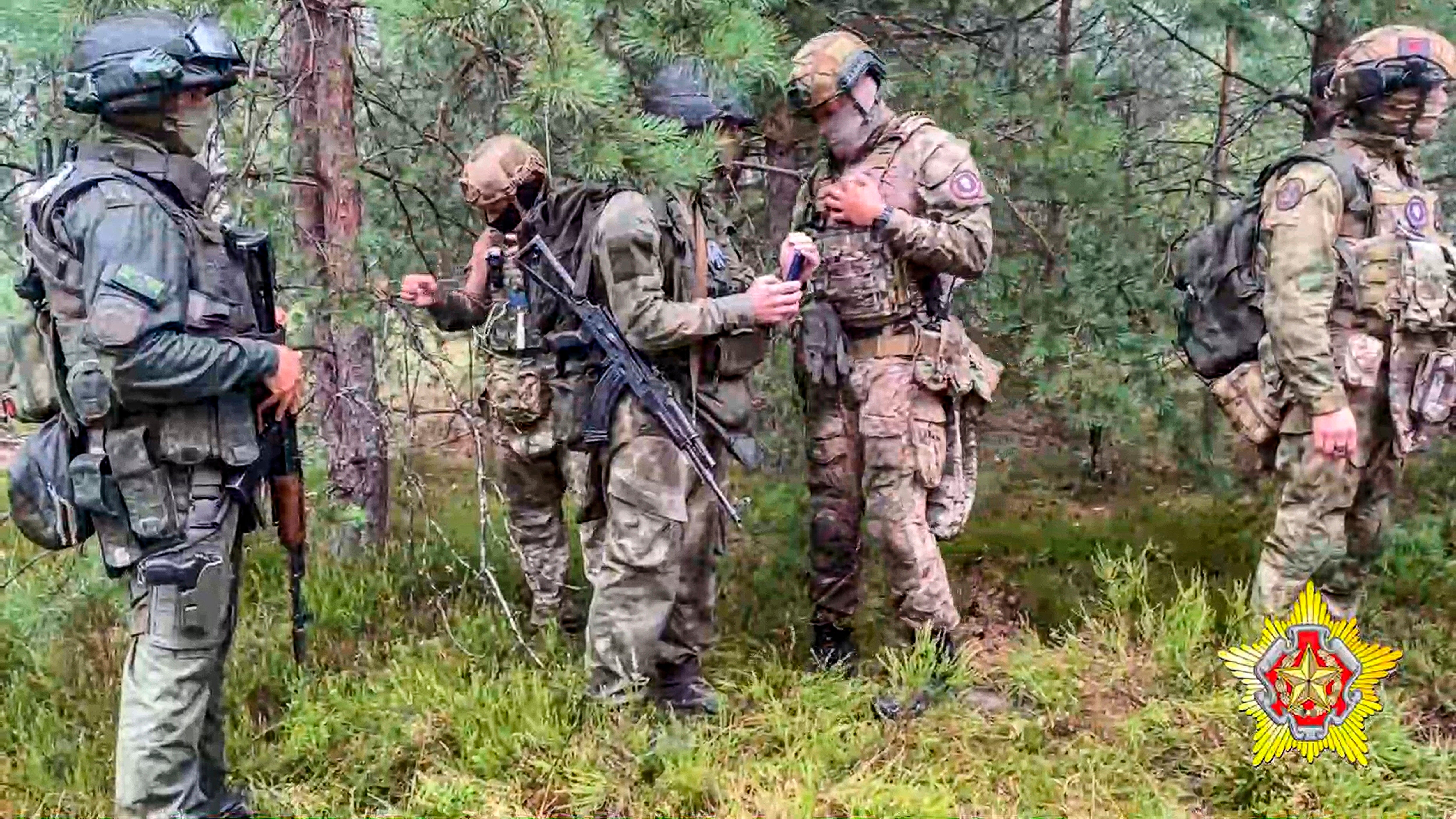‘Extremely dangerous’ Wagner fighters seeking to destabilise Nato, Poland warns
The mercenaries have been training Belarusian forces close to the Polish border in recent weeks

Fighters from the Wagner mercenary group are “extremely dangerous” and are being moved close to Poland's border to destabilise Nato, the country's prime minister has said.
Wagner soldiers have begun training with the Belarusian troops, including at a military range just a few miles from the Polish border, prompting Warsaw to start moving more than 1,000 troops closer to the border. This week, it accused Belarus of violating its airspace with military helicopters, an accusation that Minsk denied.
“The Wagner group is extremely dangerous and they are being moved to the eastern flank to destabilise it,” Mateusz Morawiecki said after meeting Lithuanian president Gitanas Nauseda in eastern Poland.
The politicians met in the Suwalki Gap, a sparsely populated but strategically important area of Polish territory between Belarus and the Russian exclave of Kaliningrad that joins the Baltic states of Lithuania, Latvia and Estonia to other Nato members.
Mr Nauseda said the number of Wagner fighters in Belarus could be higher than 4,000. “We must not only talk about measures at the national level but also ... what should be done if this situation becomes even more complicated, including the closure of the border with Belarus,” the Lithuanian president said. “This should be done in a coordinated manner between Poland, Lithuania and Latvia.”
Mr Nauseda also posted on social media that his nation and its neighbours will “stay vigilant and prepared for any possible scenario”.
Wagner fighters began to arrive in Belarus last month, in the wake of a failed mutiny against Russia's military leadership by the mercenary group at the end of June, led by its founder Yevgeny Prigozhin.
Belarusian president Alexander Lukashenko brokered a deal between Vladimir Putin's Kremlin and Mr Prigozhin, stopping the mercenaries’ march on Moscow about 125 miles from the capital. That deal involved Mr Prigozhin going to Belarus – although photographs of him in Russia have appeared recently – as well as a number of Wagner fighters. The 24-hour uprising was a severe blow to President Putin's authority, and exposed the cracks in the military over the Kremlin's handling of Russia's 18-month invasion of Ukraine.
Mr Lukashenko has repeatedly taunted Poland over the presence of Wagner troops in Poland. Earlier this week, he mockingly said Warsaw should thank him for keeping the Wagner mercenaries in check. State news agency Belta quoted him on as saying that the Poles “should pray that we're holding onto [the Wagner fighters] and providing for them. Otherwise, without us, they would have seeped through and smashed up Rzeszow and Warsaw in no small way. So they shouldn't reproach me, they should say thank you.” Rzeszow is a city near the Ukrainian border.
“Russia and Belarus are increasing the pressure on the borders, increasing the number of their provocations, and we must be aware that the number of these provocations will grow,” Mr Morawiecki said,
The meeting took place as the prime ministers of the three Baltic countries agreed to speed up their nations' disconnection from Russia's power grid by a year and connect with the continental European energy network by February 2025.
In a joint declaration, Estonia's Kaja Kallas, Latvia's Krisjanis Karins and Lithuania's Ingrida Simonyte pledged: “The shifted geopolitical situation, resulting from the unprovoked invasion of Ukraine by the Russian Federation, has also significantly deteriorated the energy security situation in the region and increased the risks of unplanned de-synchronisation of the Baltic states' electricity systems.”
The Baltic countries, which used to be part of the Soviet Union, do not currently buy electricity from Russia but remain physically connected to the Russian power grid.
The agreement represents a compromise. Lithuania had favoured an energy exit in early 2024, citing Moscow's unreliability and its aggression in Ukraine. Estonia's government resisted a quicker cut-off, saying it lacked the required technical capabilities and might experience electricity blackouts if the transition happened too soon.
Reuters and Associated Press contributed to this report
Join our commenting forum
Join thought-provoking conversations, follow other Independent readers and see their replies
Comments
Bookmark popover
Removed from bookmarks